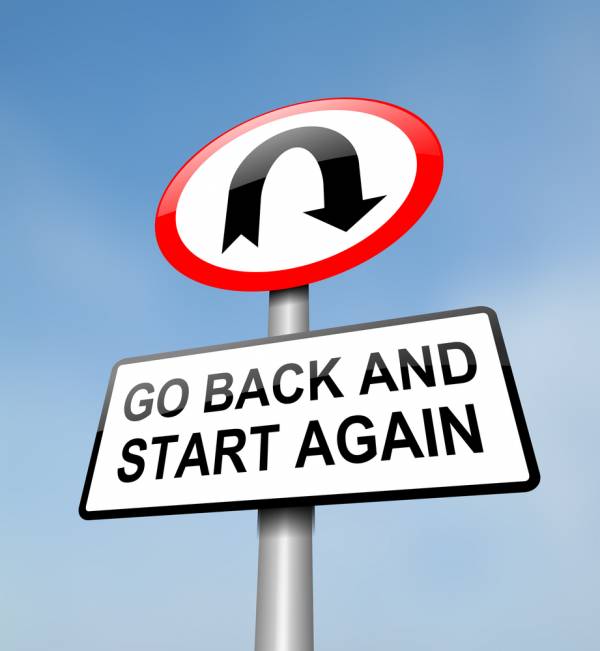Our perception is our filter on the world. Perceptions can underlie our motivations, our choices, and the degree of confidence that we have in seeing goals out to the end. They also impact the attitude we have while we pursue our goals. Perceptions are our core beliefs as we see the world and therefore affect how we react to the world and where we see ourselves in it.
The mind is weaker than the body; so just imagine what the body could do with the right mindset. Fears and self-doubt can stop an athlete in his or her tracks long before the body quits. Mental fitness is absolutely key to performance, and without it there can be no true optimal performance of any task or skill.
The Pessimistic Athlete
When something bad happens, pessimists and optimists respond differently, and they do so particularly in the way that they explain bad events (personal defeats, injury, setbacks, or loss) and the impact these events have on their lives.
Pessimists tend to use an attributional style of explaining events by attributing everything that happens to themselves. Pessimists believe that the event will forever impact their entire life. You might hear a pessimistic athlete say, “It’s me. I am terrible at this and now I am injured. I will never recover and my entire career is over.” Failing at a task or an event can lead someone who catastrophizes events to think they were just always bad at something and now the event proves it or that they are indeed failures and always will be.
Risk of this mindset: Depression, physical symptoms of stress and depression, hormonal and immune system changes.
The Optimistic Athlete
How the optimistic athlete views the same bad events is a different story. The optimists don’t blame themselves or, even if they do, they only see the setbacks as temporary events that will soon pass or be resolved. Optimists cope with bad events and they move on. In the optimistic perspective, it is the specific consequences and not the impact on your entire life that are important. You might hear the optimistic athlete say, “I really blew that event, but I will figure it out for next time. A few adjustments on technique and I can nail it.”
Benefits of this mindset: Protection from depression, disease, illness, poor eating and/or health habits.
The Renewal of the Mind
 So then, is it the world or is it how we see the world that moves us to experience it in one of these two ways? It boils down to how we think about the things that are happening to us. We are responsible for the decisions we make, the training we do, and the lifestyles we choose to live. This is true. It is also true that we don’t always make the best choices. When that happens, we are faced with what I call recovery mode. How do we recover? One thing I learned when I first began Olympic weightlifting was that you have to bail to get better. There will be lifts (and many of them) that won’t work out the way you planned. It is inevitable. There are days when that bar just won’t fly. Yet, we lift it again and we figure out ways to make it better the next time around.
So then, is it the world or is it how we see the world that moves us to experience it in one of these two ways? It boils down to how we think about the things that are happening to us. We are responsible for the decisions we make, the training we do, and the lifestyles we choose to live. This is true. It is also true that we don’t always make the best choices. When that happens, we are faced with what I call recovery mode. How do we recover? One thing I learned when I first began Olympic weightlifting was that you have to bail to get better. There will be lifts (and many of them) that won’t work out the way you planned. It is inevitable. There are days when that bar just won’t fly. Yet, we lift it again and we figure out ways to make it better the next time around.
Hint: A strong belief in your ability to make something happen and to succeed highly influences the amount of effort you put into it.
Recover Well
By believing in their ability to do something, athletes build up their bodies, in the strength and power that comes from training to get better, and in their minds, in confidence as they go forward. Recovering well means more than ice baths and saunas. It means believing in your ability to move past a momentary setback and to come away from it stronger and with confidence to do it better next time.
Don’t Be a Pollyanna
What being optimistic does not mean is to falsely or unrealistically assume or even pretend that everything is great when it is not. You might genuinely be bad at something. You might actually have a career-ending injury. Nope, denying that is no good. Losing stinks, injuries hurt, failing when you thought you were prepared is a great ego-buster, and messing up can be really embarrassing. What being optimistic does mean is that by renewing our minds to see things differently (more positively) we can take a failure, a weakness, or an injury and learn from it. From there, start building one small success on top of the next and with each step toward positive gains, you move closer and closer to succeeding. Out with the bad and in with the new. One day at a time.
Control – Commit – Challenge
 You can only control the things that you can control; you cannot control others. With that control however comes personal responsibility and accountability. Take responsibility for the decisions you make and understand you are accountable for the consequences, good or bad. If you want to be a better athlete, you must train. You can choose your coach, your gym, and your training regimen. If you aren’t getting good results, change something up. You have an influence on your surroundings from your training partners to your coaches and everything in between.
You can only control the things that you can control; you cannot control others. With that control however comes personal responsibility and accountability. Take responsibility for the decisions you make and understand you are accountable for the consequences, good or bad. If you want to be a better athlete, you must train. You can choose your coach, your gym, and your training regimen. If you aren’t getting good results, change something up. You have an influence on your surroundings from your training partners to your coaches and everything in between.
Hint: Commit to giving your best effort day in and day out, and see challenge as a natural part of life and as at least some chance for change or improvement.
Turn Failure to Success
“I’m here to tell you that the fear of failure is the engine that has driven me throughout my entire life. It flies in the faces of all these sports psychologists who say you have to let go of your fears to be successful and that negative thoughts will diminish performance.”
– Jerry Rice, Hall of Fame speech
We are all afraid of failing at one point or another. Even if we aren’t in it for ourselves, we all at least have a fear of letting others down nonetheless. If it isn’t a fear of letting your coaches, teammates, family members, or friends down, we all want to be seen as having been at least somewhat successful in what we set out to accomplish.
There is no need to let go of that fear, but the value is in letting that fear make you a better athlete or competitor. It is important to remember that everyone fails. The best athletes in the world have and still do. Again, it is how we recover that matters. Make the setbacks work for you. Become stronger, fitter, and healthier in your mind as each challenge comes and passes. That kind of positive perspective through challenges or failures will show in how you live your life, in how you conduct your business, and in how you train.
Photos courtesy of Shutterstock.






